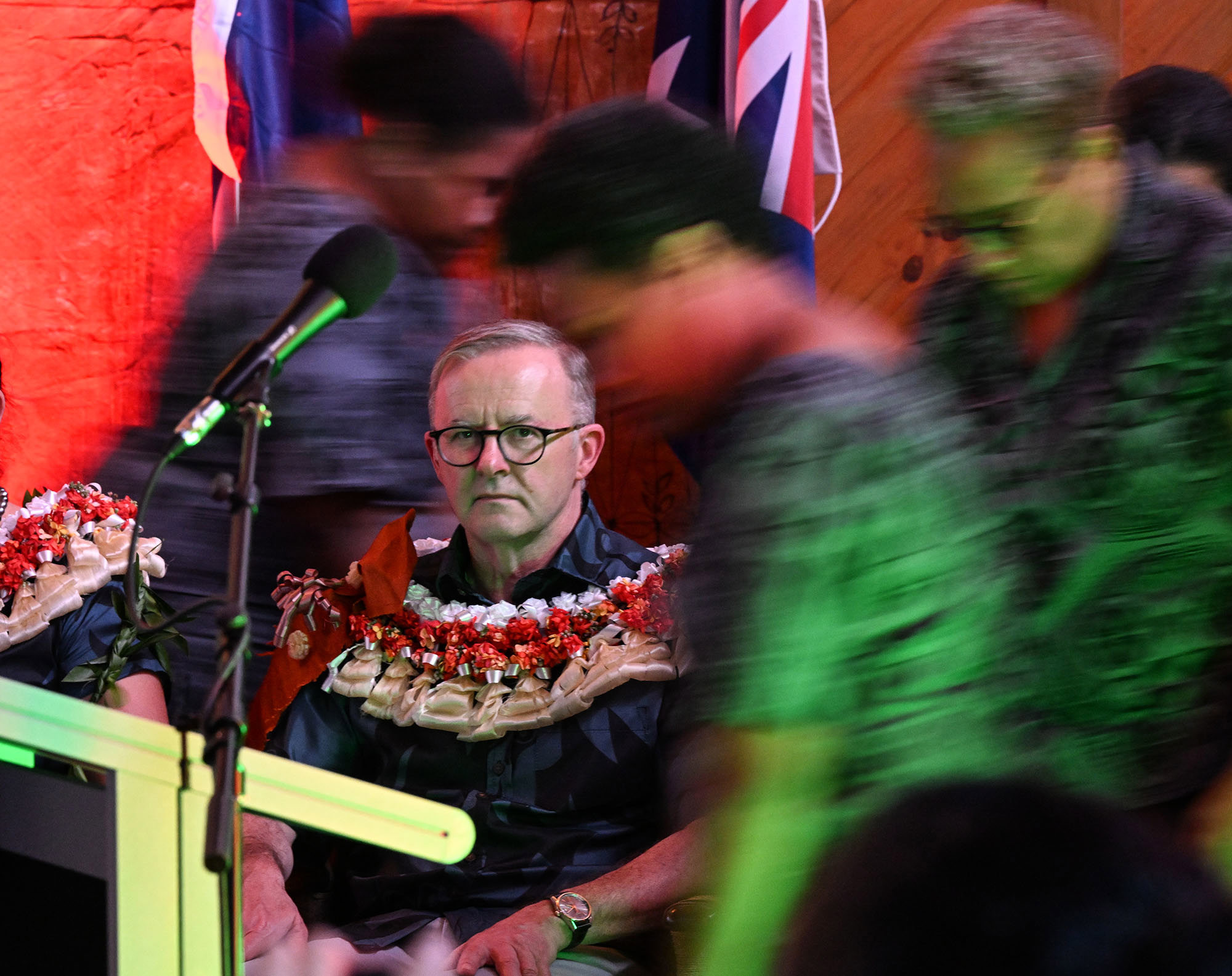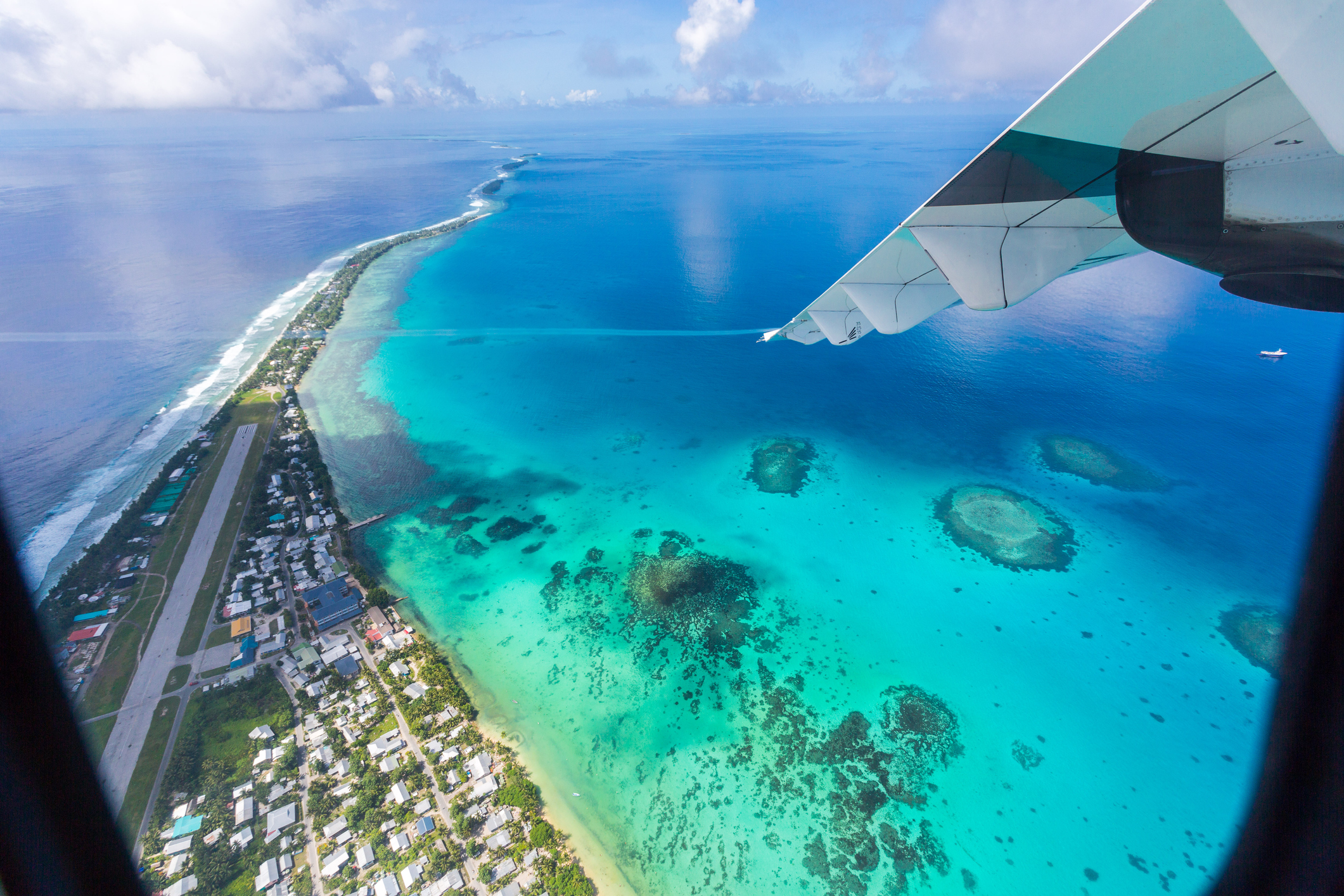Australia is facing criticism at this week's Commonwealth Heads of Government Meeting in Samoa over a lack of action on climate change putting smaller nations at risk.
A new report published this morning outlined that Australia, Canada and the United Kingdom have produced the majority of carbon emissions from the Commonwealth, despite making up just six per cent of the group of nations' combined population.
This is despite the federal government positioning itself as a leader on climate action.
READ MORE: Restaurateur pleads guilty to displaying swastika at pro-Palestinian rally
"Despite rhetoric on climate leadership and Pacific solidarity, Australia's fossil fuel exports are second only to Russia, with… the largest pipeline of coal export projects in the world awaiting approval," a statement from the report authors, the Fossil Fuel Non-Proliferation Treaty Initiative, said.
The report, titled Uncommon Wealth: Fossil Fuel Expansion in the Commonwealth Dominated by Three Wealthy Countries, also found that while rich countries like Australia emit more carbon, it is the Commonwealth's smaller nations that will face the most severe consequences.
Several Pacific nations, which are at particular risk from rising sea levels and natural disasters caused by the changing climate, have now called on Australia, Canada and the UK to decrease coal and gas production.
"It is a death sentence for us if larger nations continue to open new fossil fuel projects," Tuvalu Home Affairs Minister Maina Vakafua Talia said.
READ MORE: 'Can't kick me out': Lidia Thorpe doubles down amid calls to resign
"As a Commonwealth family, we must work together to keep our Paris commitments of limiting warming to 1.5 degrees alive and lead in financing a fair transition for countries like ours.
"We call on our wealthier partners to align themselves with this goal and not fan the flames of the climate crisis with fossil fuel expansion."
Vanuatu's special envoy for climate change, Ralph Regenvanu, had a similar message, calling on the nations to "not sacrifice the future of vulnerable nations for short-term gains".
Foreign Minister Penny Wong, who is attending the meeting in Samoa alongside Prime Minister Anthony Albanese, said Australia's action on climate change has improved under the current government.
"We understand the extent of this," she told reporters.
"I have spoken at length to the prime minister of Tuvalu about the transition in the Australian economy and it is a very big transition…
"We all have to take responsibility which is why see Australia partnering with other countries, to try and work with others to transition the global energy supply to renewable energy."
UK Prime Minister Sir Keir Starmer is also attending the meeting in Samoa, as is King Charles III, but Canadian counterpart Justin Trudeau is one of several notable leaders who will be absent.
Indian Prime Minister Narendra Modi and South Africa's Cyril Ramaphosa have also skipped the event, opting instead to go to Russia for a meeting with Vladimir Putin and Xi Jinping.





